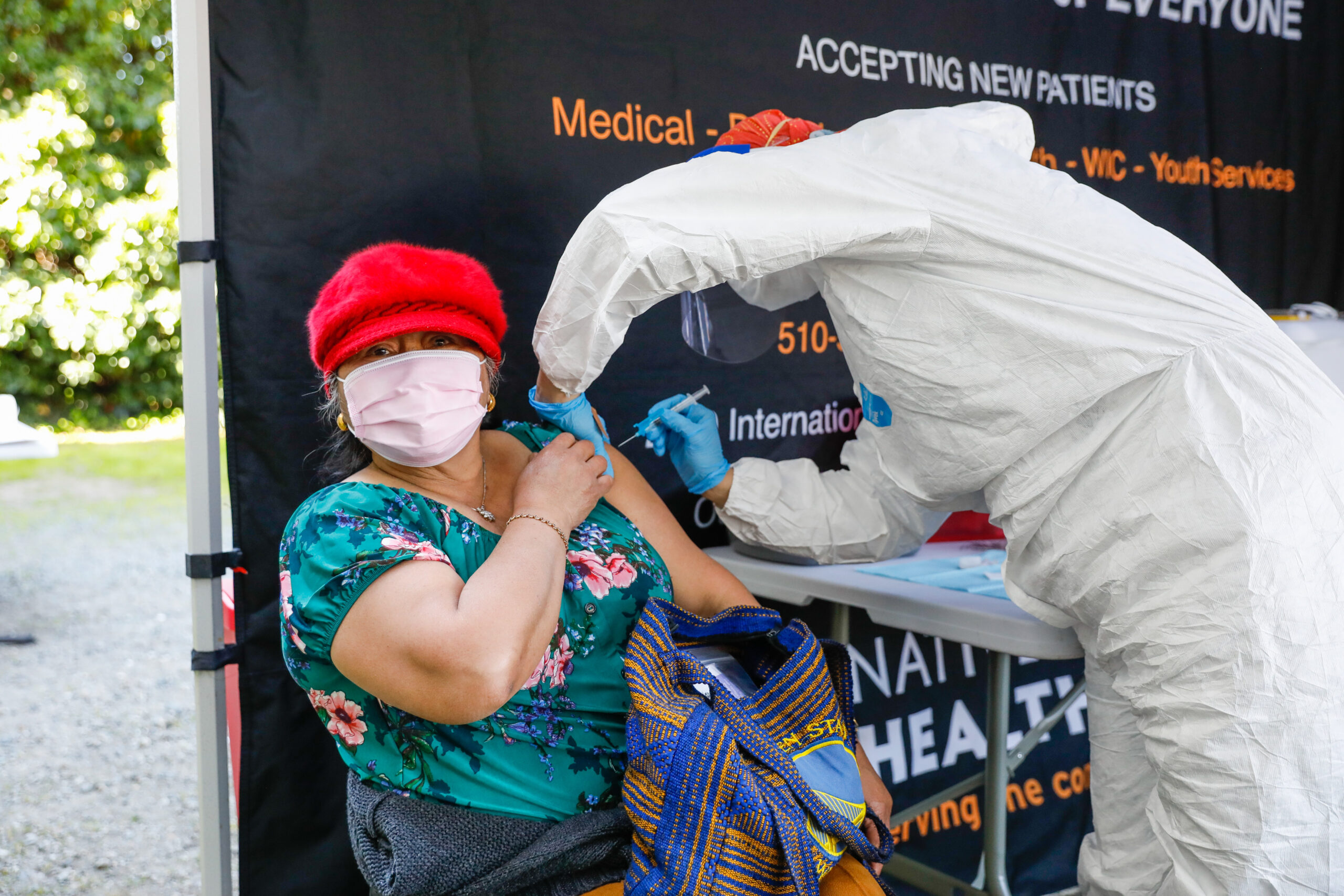With San Francisco winding down its large-scale vaccine operations, health officials are taking a new approach to vaccinations while cautioning that another spike may arrive in the coming months.
Vaccination rates in San Francisco are among the highest in the nation and the world, with 82% of eligible residents having received at least one dose of a vaccine. Currently, all residents over the age of 12 are eligible for a vaccine.
But the city’s vaccine success may be complicated by new COVID-19 variants, most notably the so-called Delta variant, which became the dominant strain in the United States as of this week. On Monday, the U.S. Centers for Disease Control and Prevention said that the Delta variant accounts for more than 51% of all COVID cases in the U.S.
“The rate [of transmission] is going to be so key,” said Dr. Grant Colfax, San Francisco’s director of health, at the city’s Health Commission hearing on Tuesday. “We’re still waiting for the science to determine [what scenario] is most likely to happen.”
Colfax said that it’s too early to predict how exactly San Francisco may be impacted by the Delta variant, which is believed to be more infectious than preceding strains by about 40% to 60%. Public health officials are closely watching the spread of the variant in countries like Israel and the United Kingdom, but precisely how much more transmissible it is, relative to the Alpha strain that drove last year’s winter surge, is still a matter of scientific debate.
Assuming the Delta variant is 50% more transmissible, and current vaccination rates remain roughly the same, the city could see an increase of around 37 to 71 hospitalizations peaking in early November, said Colfax. As ever, vaccinations are the key to protecting residents from any future upticks in disease.
“This is not a good time to be unvaccinated,” Colfax added.
San Francisco is winding down operations at Moscone Center, one of two mass vaccination sites the city established this year. The convention venue, which also served as the city’s COVID command center, will close its vaccination program on July 14. Another large site, at City College’s main campus, shuttered on June 26.
The city’s data show stubborn disparities in vaccination rates, as well as new infection rates, by demographic and neighborhood. Although total new infections have plunged this year—San Francisco was averaging about 20 new cases per day at the end of June—neighborhoods in the southeastern part of San Francisco, including Bayview-Hunters Point, Visitacion Valley and the Mission, were showing higher case rates than the citywide average.
“It was clear that the mass vaccine sites…are not the mechanisms where we’re going to get significant increases in the number of unvaccinated people getting vaccinated,” said Colfax.
Vaccines continue to be widely available through the Department of Public Health’s (DPH) neighborhood sites, mobile clinics and roving vaccinations teams, as well as at pharmacies and other low-barrier locations.
Other creative vaccination campaigns have also emerged. DPH recently teamed up with the San Francisco Giants to offer a free pair of tickets to residents who got vaccinated at designated vaccination sites. Last month, California raffled off amusement park tickets, gift cards and “dream vacations” to residents who elected to get vaccinated.
“This is the toughest part of the response so far; the last mile is the hardest,” said Dr. Andi Tenner, an operations lead at San Francisco’s COVID Task Force. “This really involves getting into the communities, meeting with community members and understanding what the barriers are.”
The city’s COVID Task Force and DPH are aiming to maintain a consistent presence in neighborhoods with lower vaccination rates by sustaining existing mobile teams and by showing up at community events that aren’t necessarily vaccine-specific.
Given the Delta variant, DPH is also looking for a single contractor who can offer vaccinations, rapid testing and contact tracing at neighborhood sites so the city can better track any changes in positivity rates.
